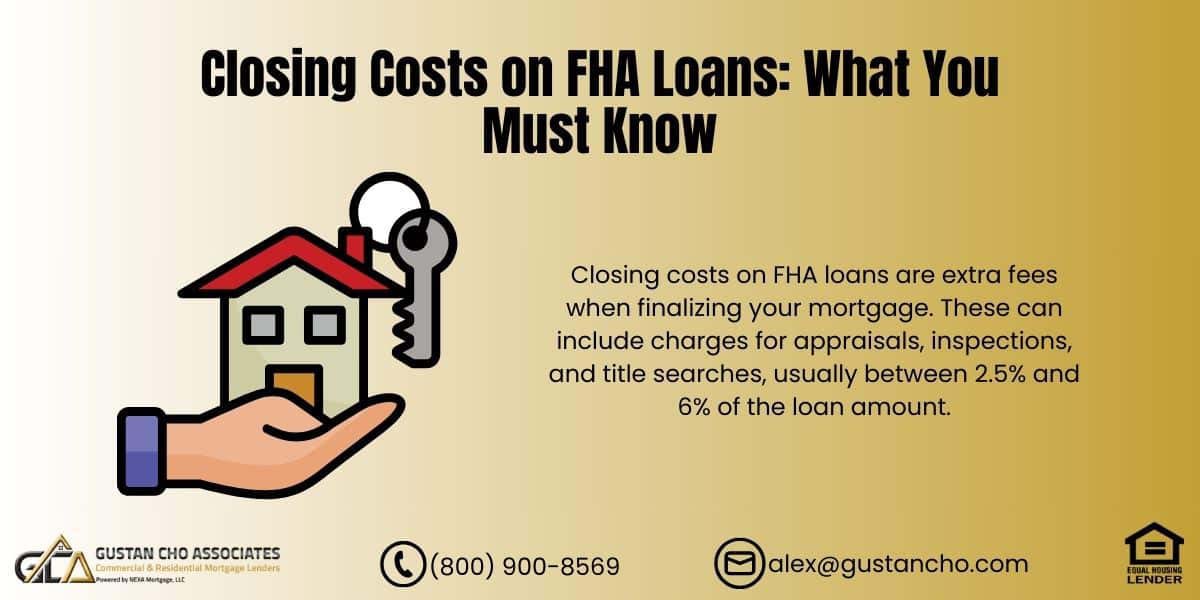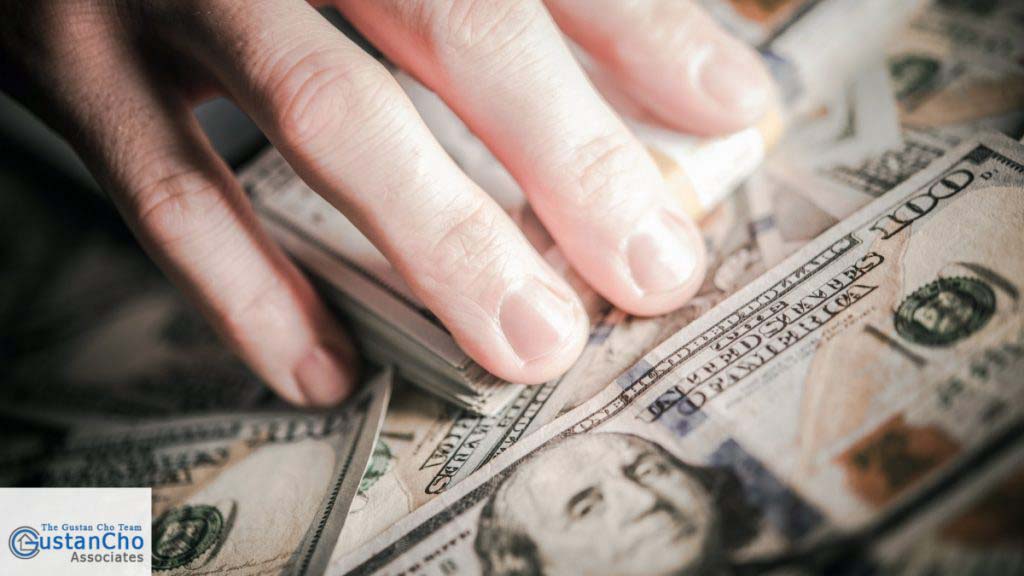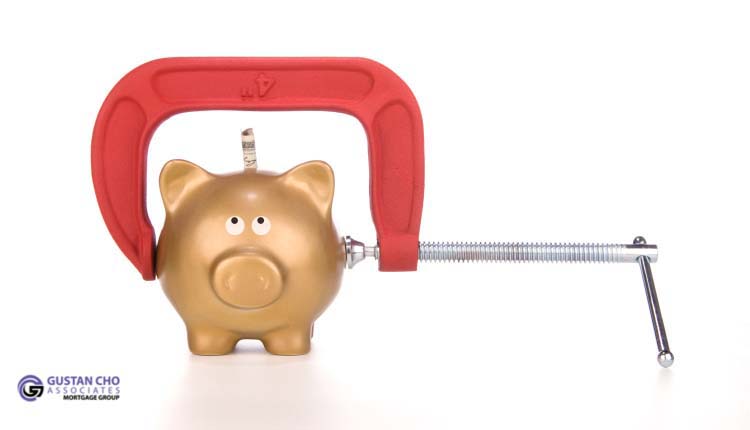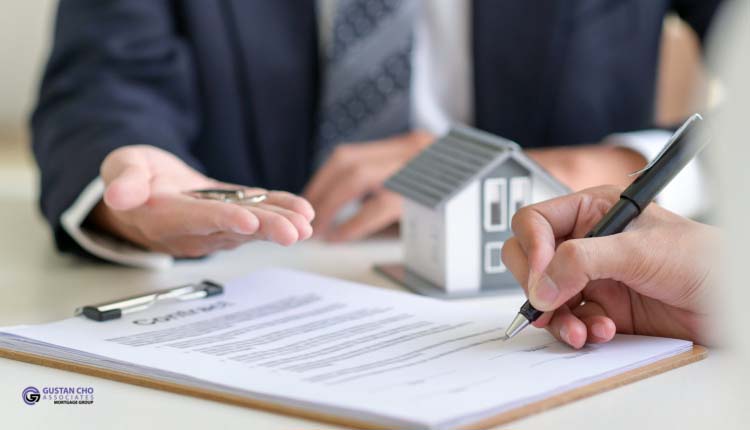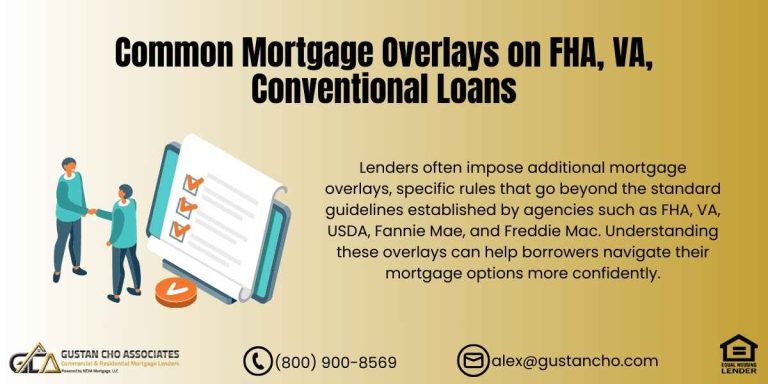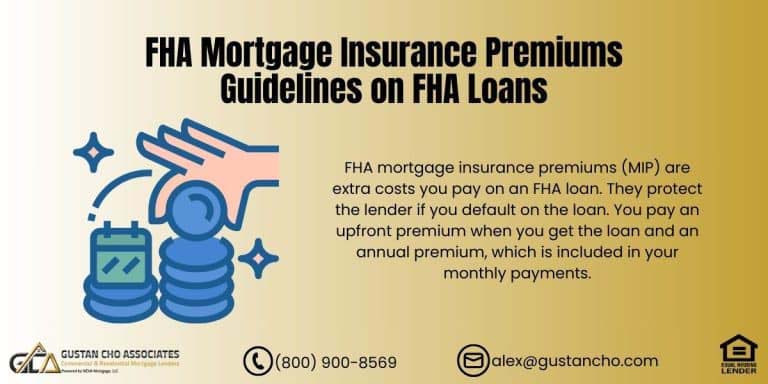When planning to buy a house using an FHA loan, it’s common to focus a lot on how much cash you need upfront for the down payment, which is 3.5% of the house’s price. But there’s another important thing you need to think about—closing costs. Closing costs are extra fees you have to pay when you’re finishing up buying your house, and they can vary a lot. In this fresh 2024 guide, I’ll make sure you get all the info you need about closing costs on FHA loans, making sure you’re not caught off guard when it’s time to seal the deal on your new place.
What Are Closing Costs?
When you’re getting a mortgage, there are extra fees you have to pay before everything’s final—these are called closing costs. Think of it like the checkout counter when you’re buying a house. These costs include checking the house’s value, ensuring it’s in good shape, and doing the paperwork to get everything legally sorted.
For FHA loans, a type of mortgage, the closing costs usually range from about 2.5% to 6% of the amount you’re borrowing to buy the house. The exact number can change for different reasons, like where you’re buying the house, how expensive the house is, and the specific details of your loan agreement.
So, when talking about closing costs on FHA loans, it’s basically about all those extra charges you need to pay at the end of the home-buying process to make the house officially yours.
Need Help with Closing Costs on Your FHA Loan? We’ve Got You Covered!
We can help you understand and reduce the closing costs on your FHA loan. Contact us now to get expert advice and start your loan application.
Understanding FHA Loans
When wrapping up the costs of getting a home with an FHA loan, it’s key first to get what an FHA loan actually is. Think of it as a special kind of help from the government when buying a house. It’s there for folks buying their first place, people who might not have the cleanest credit history, or those who owe a fair bit compared to what they make.
The reason it’s a bit easier to get your hands on one of these loans is because a part of the government called the FHA has your back. This means banks might give you a break with a smaller down payment or better interest rates. Now, when we talk about closing costs on FHA loans, that’s all the fees and extra bits you need to pay when finalizing everything with your loan and house purchase.
Why FHA Loans Are Popular
FHA loans are a favorite pick for many people wanting to buy homes, especially if they’re doing it for the first time or their credit score isn’t top-notch. It’s easier to get approved for these loans compared to the usual ones from banks. This can be a big help if you haven’t saved up a huge amount for a down payment. But there’s a catch – there are extra fees you need to pay, like the closing costs on FHA loans. These are fees you pay when you finalize buying your home, and they can add up. So, while FHA loans help you get your foot in the door, consider these additional costs, too.
How Much Are Closing Costs on FHA Loans?
When we talk about closing costs on FHA loans, it’s like when you’re buying something big, and you have to pay extra fees on top of the price. Think of it as the fees for completing all the paperwork and checks so you can officially own the house. With FHA loans, these extra fees – “closing costs” – are usually between 2.5% to 6% of how much money you’re getting to buy the house.
Let’s say the house you want is $250,000. The closing costs could be from about $6,250 to $15,000. Remember, this is extra from what you pay as your first chunk of money for the house or your down payment. It’s all part of what you need to settle to get the keys to your new home.
What Factors Affect Closing Costs?
Several factors can influence the amount you’ll pay in closing costs, including:
- Location: Closing costs can vary widely depending on where you live. Some states have higher taxes and fees, which can increase your overall costs.
- Loan Amount: The closing costs increase with a larger loan because many of the fees are calculated based on the loan amount.
- Lender Fees: Different lenders may charge different fees, so shopping around and comparing offers is important.
- Third-Party Fees: These include costs for services like appraisals, inspections, and title searches, which third parties typically perform.
- Seller Concessions: Sometimes, sellers may agree to cover part or all of your closing costs as part of the negotiation process. We’ll discuss this option in more detail later.
Breakdown of Typical FHA Loan Closing Costs
Let’s break down the most common closing costs you’ll encounter with an FHA loan:
- Loan Origination Fees: The lender charges this fee to process your loan application, usually 0.5% to 1% of the loan amount.
- Appraisal Fees: An assessment is necessary to establish the property’s market worth. Typically, this charge ranges from $300 to $500.
- Credit Report Fee: Lenders will look at your credit report to decide if you are likely to repay a loan. The fee is usually between $30 and $50.
- Title Insurance and Title Search Fees: The lender is protected by title insurance if any issues relate to the property’s title. The title search fee ensures no liens or claims against the property. Together, these can cost between $500 and $1,000.
- Homeowners Insurance: Before you close, your lenders will need you to have homeowners insurance. You typically have to pay the first year’s premium upfront, ranging from $500 to $1,500, depending on the home’s value and location.
- Property Taxes: Depending on the time of year you close, you may need to pay property taxes upfront. This can add several hundred to a few thousand dollars to your closing costs.
- Recording Fees: The local government charges these fees to record the transaction officially. Usually, they range in cost from $100 to $250.
- Upfront Mortgage Insurance Premium (UFMIP): FHA loans include a 1.75% upfront mortgage insurance premium based on the loan amount. For instance, a $250,000 loan would total $4,375.
- Prepaid Interest: Depending on your closing date, you may need to pay interest from the closing date until the end of the month. This amount can vary but is usually a few hundred dollars.
The Role of the Loan Estimate (LE) and Closing Disclosure (CD)
When talking about FHA loans, two important papers you should know about are the Loan Estimate (LE) and the Closing Disclosure (CD). Let’s break it down into simpler terms.
First, when you apply for an FHA loan, your lender will hand you a Loan Estimate. Think of it as a heads-up on what you might have to pay at the end – all those fees and costs needed to get your loan across the finish line, along with what you might pay monthly. It’s your first glance at your closing costs on FHA loans. But remember, these numbers aren’t set in stone. They could change a bit as you get closer to finishing the deal.
Then, when you’re about to close, you’ll get something known as the Closing Disclosure. This one’s super important because it lays out exactly what you’ll pay at closing. It’s like the final bill.
It’s your chance to go through everything with a fine-tooth comb and ensure it all adds up. Found something off or got a question? This is the time to talk to your lender.
In simple terms, monitor these documents closely; they’re your roadmap to understanding the closing costs on FHA loans and avoiding surprises.
Buying a Home with an FHA Loan? Let’s Help You With Your Closing Costs!
Reach out today to find out how we can assist with your FHA loan closing costs.
How to Pay for Closing Costs on FHA Loans
Now that you know what closing costs entail, the next question is: How do you pay for them? Here are some common strategies:
Out-of-Pocket Payment
The most straightforward way to pay for closing costs is out of pocket. On the closing day, you must bring a cashier’s check or wire the funds to the closing agent. Ensure you have enough saved to cover your down payment and closing costs.
Seller Concessions
Sometimes, it’s possible to discuss with the seller having them pay for some or all of your closing costs. This is referred to as a seller concession. In the case of FHA loans, sellers can contribute up to 6% of the home’s purchase price towards the buyer’s closing costs. This can be a great way to reduce your out-of-pocket expenses but remember that the seller may raise the home’s purchase price to offset this cost.
Lender Credits
Another option is to receive lender credits. In this scenario, the lender covers some or all of your closing costs in exchange for a higher interest rate on your loan. While this can save you money upfront, it’s important to consider the long-term cost of paying a higher interest rate over the life of the loan.
Gift Funds
If you’re lucky enough to have a generous relative or friend, you can use gift funds to cover your closing costs. The FHA allows the entire down payment and closing costs to be gifted as long as the funds come from an approved source and are properly documented.
The Impact of Mortgage Insurance on FHA Loan Closing Costs
When you’re getting an FHA loan to buy a house, you need to know there are extra fees at the start and every month to protect the lender in case things don’t go as planned and you can’t pay back the loan.
At the very beginning, when you close on your house, you’ll have a one-time fee that’s 1.75% of your loan amount. This is part of your closing costs on FHA loans, and it’s called the upfront mortgage insurance premium (UFMIP). For example, if your loan is for $100,000, you’ll pay $1,750 at closing, in addition to other costs.
Then, you pay a fee every year, but it’s broken down into monthly payments and added to what you pay for your mortgage each month. The annual mortgage insurance premium (MIP) can be between 0.45% and 1.05% of how much you still owe. The exact percentage depends on how big your loan is, how long you’ll be paying it back, and how much money you put down compared to the house’s value.
These fees aren’t something you can skip or negotiate away—they’re a must. But they’re there for a good reason: they make it possible for more people to get home loans, even if their credit isn’t perfect or they can’t make a big down payment.
Worried About Closing Costs on Your FHA Loan? We Can Help You Navigate Them!
Contact us today to learn how we can help you understand and cover your FHA loan closing costs.
Closing Costs on FHA Loan Refinances
You must also pay closing costs if you’re refinancing your FHA loan. These costs are similar to those on a purchase loan and include loan origination fees, appraisal fees, and title insurance. However, you may also encounter some additional costs specific to refinancing, such as:
- Prepayment Penalties: While FHA loans do not have prepayment penalties, some conventional loans do. If you’re refinancing from a conventional loan to an FHA loan, check your current loan terms to see if a prepayment penalty applies.
- Discount Points: You can decrease your interest rate by paying discount points. Typically, each point costs 1% of the total loan amount and has the potential to reduce your interest rate by around 0.25%.
No-Cost FHA Loan Refinance: Is It Really Free?
Some lenders advertise “no-cost” refinance options, but be aware there’s no such thing as a truly free loan. In a no-cost refinance, the lender covers the closing costs in exchange for a higher interest rate. While this can be an attractive option if you’re short on cash, you’ll end up paying more in interest over the life of the loan.
Tips to Reduce Your Closing Costs
Reducing your closing costs can make buying or refinancing your home more affordable. Here are some tips to help you lower these expenses:
- Shop Around for Lenders: Be sure to shop around because various lenders have different fees. Obtain Loan Estimates from multiple lenders and then compare the expenses.
- Negotiate Fees: Some fees, such as the loan origination fee, may be negotiable. Don’t hesitate to ask your lender if they can lower or waive certain fees.
- Ask for a Seller Concession: If you’re buying a home, ask the seller to contribute to your closing costs. This can significantly reduce your out-of-pocket expenses.
- Consider a Lender Credit: While this will result in a higher interest rate, it can save you money upfront if you don’t have enough cash to cover the closing costs.
How to Prepare for Closing Day
The last day is the concluding stage of purchasing a home or refinancing. Here’s what you need to know to ensure everything goes smoothly:
- Review Your Closing Disclosure: A few days before closing, review your Closing Disclosure carefully. Ensure all the details match your Loan Estimate and you understand the final costs.
- Bring Your ID and Cashier’s Check: On closing day, bring a government-issued photo ID and a cashier’s check for the amount due (or arrange a wire transfer). Personal checks are usually not accepted.
- Sign the Paperwork: You must sign a stack of documents, including the mortgage agreement, promissory note, and other legal forms. Take your time and ask questions if anything is unclear.
- Get the Keys: After all the documents have been signed and the money has been transferred, you will be given the keys to your new home (or notified that your refinance is finished).
What Happens After Closing?
After closing, your lender will finalize the loan, and you’ll officially become a homeowner or complete your refinance. Here’s what happens next:
- First Mortgage Payment: Your initial mortgage payment will need to be made within one or two months, based on the terms of your loan. Your lender will give you a payment schedule.
- Ongoing Mortgage Insurance: If you have an FHA loan, the annual mortgage insurance premium will still be included in your monthly payment.
- Title and Deed: The title to your home will be recorded with your local government, officially making you the owner.
Conclusion
Closing costs on FHA loans can add up quickly, but being prepared can help you avoid last-minute surprises. Before deciding about buying a home or refinancing, it’s important to understand how these expenses are calculated and the payment options available.
Remember, FHA loans are a fantastic option for many buyers, especially those with less-than-perfect credit or limited savings for a down payment. Planning and exploring your options for covering closing costs can make your dream of homeownership a reality.
If you’re ready to take the next step, contact a trusted mortgage lender who can guide you through the process and help you secure the best terms for your FHA loan. Understanding your closing costs will ensure your success in 2024 and beyond, whether purchasing your first home or refinancing an existing mortgage.
FAQs: Closing Costs on FHA Loans: What You Must Know
- 1. What are the closing costs on FHA loans? Closing costs on FHA loans are extra fees when finalizing your mortgage. These can include charges for appraisals, inspections, and title searches, usually between 2.5% and 6% of the loan amount.
- 2. How much are closing costs on FHA loans? Closing costs on FHA loans typically range from 2.5% to 6% of the loan amount. For example, on a $200,000 loan, you pay between $5,000 and $12,000 in closing costs.
- 3. Can I roll closing costs into my FHA loan? While you can’t directly roll closing costs into your FHA loan, you can use strategies like lender credits or seller concessions to help cover these costs.
- 4. What do closing costs on FHA loans include? The expenses associated with FHA loans encompass a range of charges, including loan origination fees, appraisal fees, title insurance, credit report fees, and upfront mortgage insurance premiums (UFMIP).
- 5. Can the seller pay the closing costs on FHA loans? Yes, sellers can contribute up to 6% of the home’s purchase price toward closing costs on FHA loans. This can help reduce the amount you need to pay out of pocket.
- 6. Are closing costs on FHA loans higher than those on conventional loans? Closing costs on FHA loans can sometimes be higher than conventional loans, mainly due to the required upfront mortgage insurance premium (UFMIP).
- 7. How can I reduce closing costs on FHA loans? You can reduce closing costs on FHA loans by shopping around for lenders, negotiating fees, asking for seller concessions, or opting for lender credits in exchange for a higher interest rate.
- 8. Do I need to pay closing costs on FHA refinance loans? Yes, closing costs apply when refinancing an FHA loan. These costs are similar to those on a purchase loan, including fees like appraisal, title insurance, and loan origination.
- 9. When do I find out the exact closing costs on FHA loans? You’ll When you apply, you’ll receive a Loan Estimate (LE), which estimates your closing costs. The amount is finalized in the Closing Disclosure (CD) provided a few days before closing.
- 10. Can I use gift funds to pay for closing costs on FHA loans? Yes, FHA allows you to use gift funds from a family member or approved source to cover your closing costs. Proper documentation is required to show the source of these funds.
Homebuyers needing to get pre-approved with a direct national lender no mortgage lender overlays, please contact us at Gustan Cho Associates at 1-800-900-8569 or text us for a faster response. Borrowers can also email us at gcho@gustancho.com. We are available 7 days a week, evenings, weekends, and holidays to take your calls and answer any questions you may have.
This blog about Closing Costs on FHA Loans: What You Must Know was updated on August 12th, 2024.
Understanding FHA Loan Closing Costs? Let Us Help You Minimize Them!
Contact us today to explore options for reducing your closing costs and getting the best deal.


